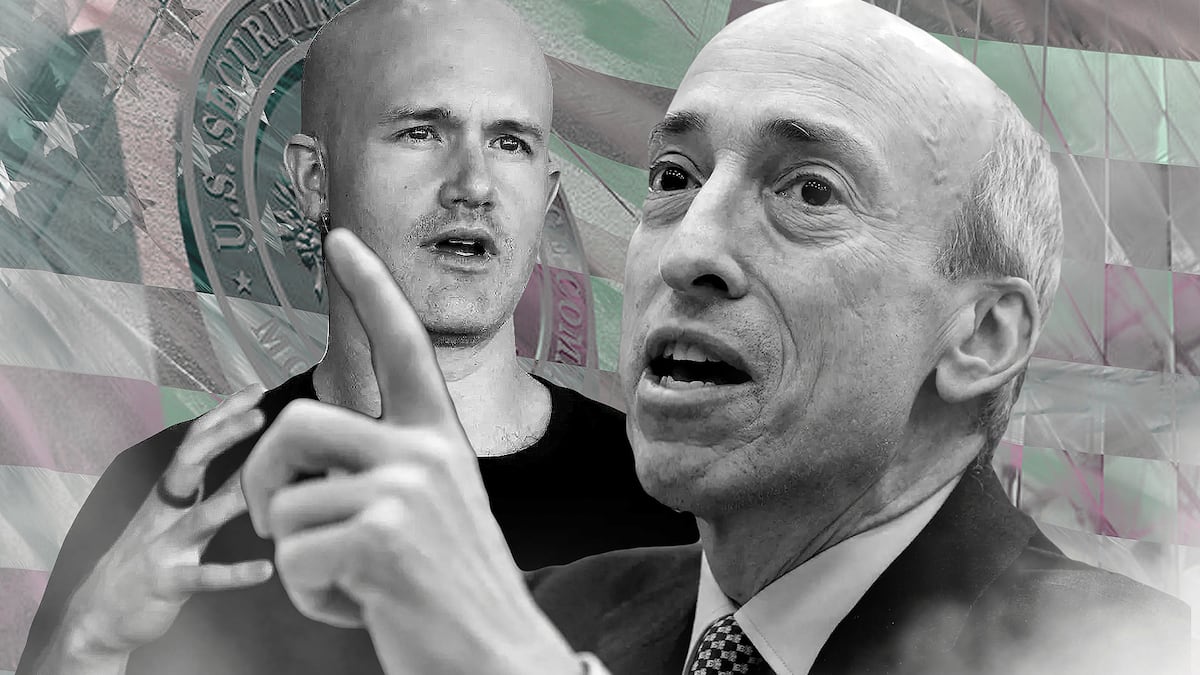- Crypto's backers celebrated a major Supreme Court ruling that overturns a decades-old precedent
- The ruling is the second this week that challenges the power of regulators over industry.
Crypto backers on Friday celebrated a landmark ruling by the Supreme Court that the industry believes will hobble the Securities and Exchange Commission in its crackdown on crypto businesses.
“The writing is on the wall,” Paul Grewal, chief legal officer at crypto exchange Coinbase, wrote in a post on X, hailing the court’s decision.
“Chevron's presumption is misguided because agencies have no special competence in resolving statutory ambiguities. Courts do."
— paulgrewal.eth (@iampaulgrewal) June 28, 2024
The writing is on the wall.
The highest court in the US overturned a major precedent — known as Chevron deference — that for 40 years has seen courts defer to regulators’ expertise on tricky legal questions regarding the industries they oversee.
For its conservative critics, overturning the Chevron doctrine curbs the power of unelected officials to interpret vague laws.
Chevron’s presumption that courts should defer to regulators is “misguided because agencies have no special competence in resolving statutory ambiguities. Courts do,” Chief Justice John Roberts wrote in his opinion.
Still, Chevron’s backers say it’s done the job for 40 years and overturning it is the action of a court stacked with ultraconservative justices looking to hand a win to their corporate cronies.
All three of the Supreme Court’s liberal justices dissented from the 6-3 ruling.
“The majority disdains restraint, and grasps for power,” Justice Elena Kagan wrote in her dissent.
The case has no direct connection with crypto. Rather, it involved a dispute between herring fishing companies and their regulator.
The two companies — Loper Bright and Relentless — took the federal agency to court to challenge its monitoring programme.
District courts sided with the fishing regulator, citing Chevron deference.
‘The majority disdains restraint, and grasps for power.’
— Justice Elena Kagan
Loper Bright and Relentless appealed the rulings, and the cases wound up in the Supreme Court.
The Supreme Court agreed to address only one question in the case — whether it should overrule the lower courts’ deference to the regulator.
Now, with the Chevron doctrine overturned, judges and not regulators will get the last word on issues where the law isn’t clear.
Bad week for the SEC
Crypto companies chafing under an SEC crackdown will see Chevron’s overturning as a boon.
It boosts the arguments of firms including Coinbase, Binance, Kraken, and Terraform Labs that the regulator is overstepping its authority in bringing enforcement actions against them.
It’s been a bad week for the power of the SEC.
The Loper Bright ruling comes just a day after a Supreme Court ruling in a separate case, also closely watched for its ramifications on the power of the executive branch.
That case pitted the SEC against hedge fund manager George Jarkesy.
In a groundbreaking decision on Thursday, the court ruled 6-3 that fraud defendants have the right to a jury trial — a challenge to the SEC’s use of in-house judges in tribunals.
Regulators kneecapped
While crypto boosters celebrated these decisions, their implications extend far beyond the industry.
Critics say they are precedents that will kneecap the ability of regulators to stop corporations from committing ecological offences, riding roughshod over occupational safety rules, ignoring food safety standards, and so on.
They point to how fishing companies Loper Bright and Relentless are backed by conservative groups — including petrochemicals billionaire Charles Koch — many of whose stated ambition is to scrap Chevron.
The more conservative Supreme Court justices are increasingly being questioned for their ties to corporate interests.
Reach out to the author at joanna@dlnews.com


